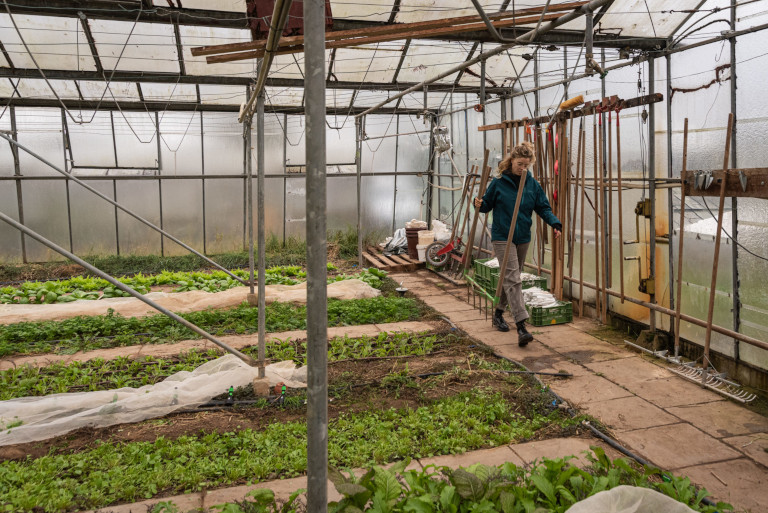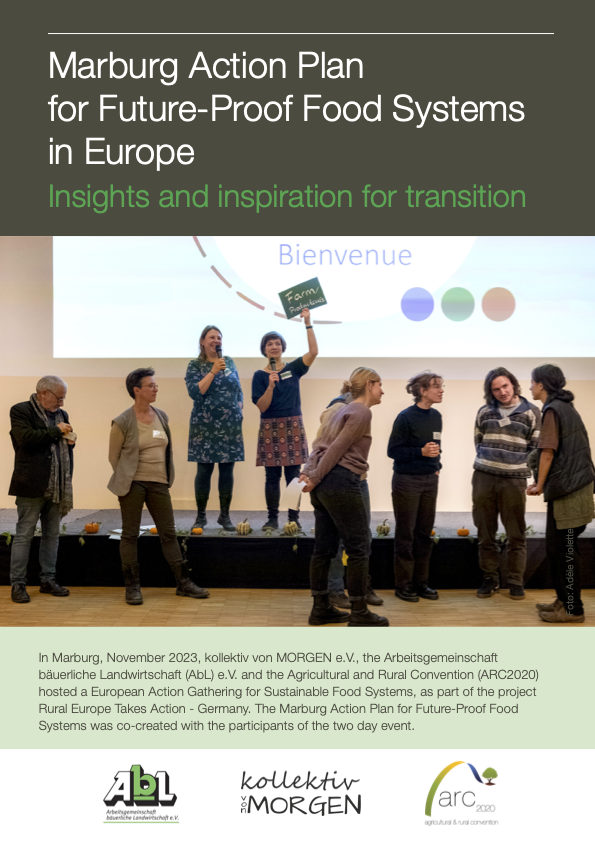ARC2020, together with kollektiv von MORGEN and the Arbeitsgemeinschaft bauerliche Landwirtschaft, presents the “Marburg Action Plan for Future-Proof Food Systems in Europe”.
The Agri-food System isn’t Working for All
Farmers across Europe have taken to the streets. They protest volatile incomes, rising costs, unfair pricing and buying practices, unfair competition from imports and free trade agreements, regulatory strangleholds and bureaucratic burdens. Meanwhile, profits amass in the hands of the few dominant agrifood businesses, and the EU policy framework continues to shape a food system with devastating impacts for people and the planet.
The effects of climate change, biodiversity loss and socio-economic inequalities are dramatic and ongoing, yet the European Union has systematically missed opportunities to create a policy framework that drives and supports system change to ecological and resilient food and farming. Its promised framework for Sustainable Food Systems never materialised. In short, the EU institutions pushed a ‘man on the moon’ moment, but didn’t provide the supporting infrastructure to make this a reality. In parallel, powerful agrifood firms, including machinery and chemical companies, manufacturers and retailers, wield ever growing influence in, and profit from, food supply chains.
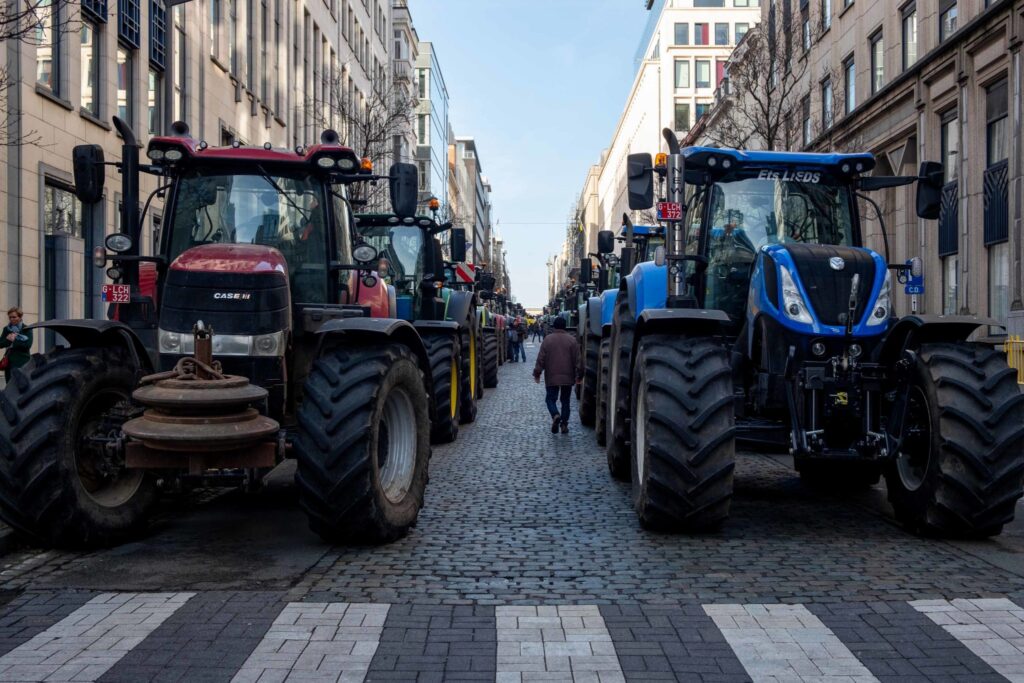
Photo: Adèle Violette
Alternatives from the ground up – the Marburg Action Plan
Farmers, agricultural and food workers – and all of us who participate in the dominant food markets in order to eat – are locked-into business as usual. The last thing society needs to address systemic failures of the food system is rollback in commitments to socio-ecological transition, or a turn towards politics built on exclusion and oppression, which seems to be what is offered following farmers’ protests.
Here are alternatives: Action for future-proof food systems is already taking place on the ground. The Marburg Action Plan for Future-Proof Food Systems in Europe shows that farmers, municipalities, public authorities, territorially embedded businesses, processors, citizens and civil society organisations are working together in a diversity of ways to create regional, holistic and sustainable approaches that focus on the health and well-being of planet and people. All of these actors can be agents of food system transformation that is rooted in crossboundary solidarity, just transition and a living countryside.
Yet we still urgently need deeper system change: immediate and coherent actions for future-proof food systems across places and policies at all levels. As we wait for, and expect, the EU to create the necessary policy framework, support and incentives to consolidate and scale future-proof food systems, we invite all food actors to refer to or adapt the Marburg Action Plan in their own contexts. The action plan provides insights into food system transformation already taking place on the ground, and at the same time calls for a coherent political framework and support options from the municipal level to the EU.
Click to view and download
Call for Action at the European level
-
- Stop the Green Deal rollback. Create an integrated EU policy framework that enables socio-ecological transition in food and farming systems and rural areas.
- Direct political commitment and resources toward change-making communities on the ground. Transformative action for the development and preservation of fair and ecological food systems is already happening across Europe, with huge policy potential. Enable communities to put in place governance processes and spaces, where the voices, demands and proposals of all relevant people – farmers, residents, civil society and social movements – are heard.
- Use EU funds and frameworks, to amplify and network locally-driven actions. CAP market and sectoral interventions are among the resources available, while collaboration and willingness to change comes from the ground.
- Ensure real subsidiarity. Create the conditions for coherence and collaboration with multiple governance levels and disciplines intersecting in food systems, from farming to health, education, trade, infrastructure and quality of life in rural areas.
Actionable Goals of the Marburg Action Plan for Future-Proof Food Systems in EuropeGoal 1: Re-localised, diverse food systems with strong citizen engagement Goal 2: Connected and coordinated local and regional food actors, initiatives & tools for regional food systems Goal 3: Inclusion and equality for people of all ages, social classes, genders, ethnic and racial groups, and sexual orientations in agri-food governance Goal 4: Trust, cooperation and co-creation between value chain actors Goal 5: Sustainable food accessible for all, with easier & fairer forms of distribution and sustainable food markets Goal 6: Access to land and commons for sustainable food production |
Urgent actions for food system change
We demand immediate action on the ground, with a new energy to establish an EU framework on Sustainable Food Systems (SFS) following the EU elections. This needs to be done to:
- Prevent regressive policy developments – inconsistent EU and national policy rollbacks are rapidly regressing what few real sustainability measures have been put in place.
- Build from the base – create convergence among bottom-up movements, practices, engagements to create real sustainable food systems.
- Create systemic coherence – the existing regulatory, financial and governance systems are not integrated or coherent. Rural, agri-food, environmental policies like the CAP are not fully equipped with the necessary framework to take joint responsibilities in areas such as rural resilience and wellbeing, healthy diets, access to land and commons, fair food market
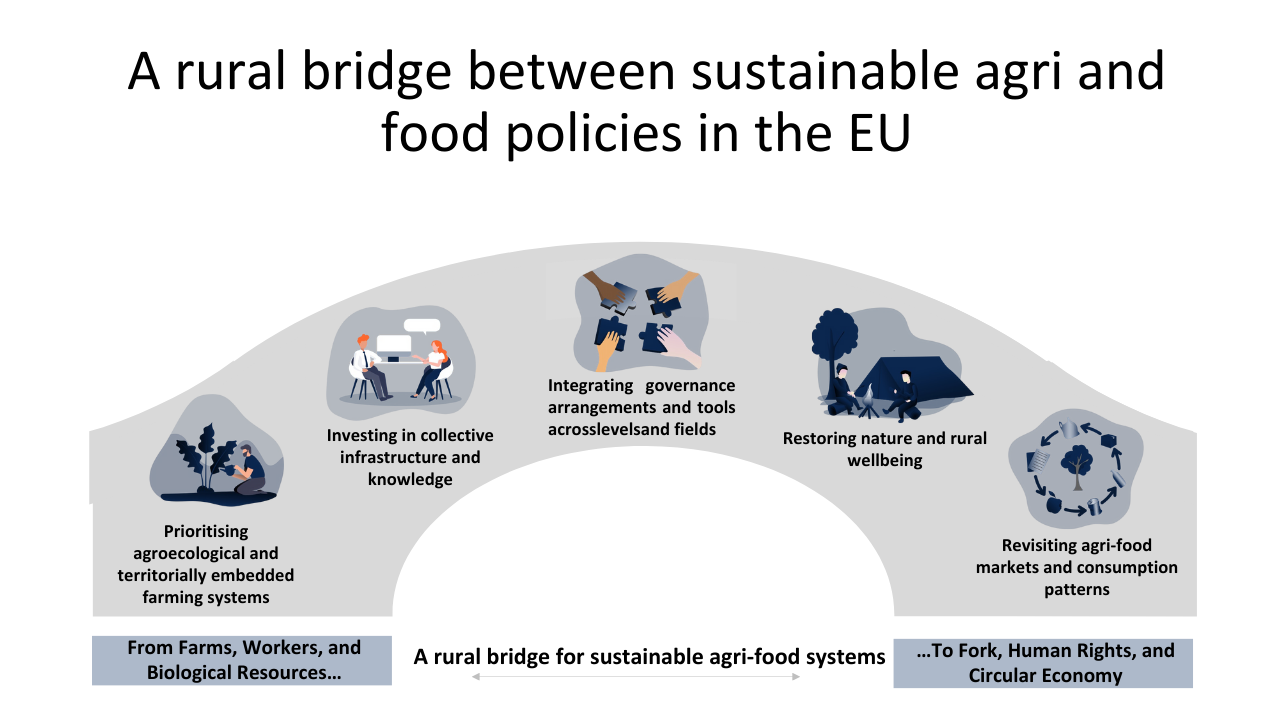
Fig. 1: A broader framework bridging rural development with sustainable agri-food systems
Where did this Action Plan come from?
In Marburg, November 2023, kollektiv von MORGEN e.V., the Arbeitsgemeinschaft bäuerliche Landwirtschaft (AbL) e.V. and the Agricultural and Rural Convention (ARC2020) hosted a European Action Gathering for Sustainable Food Systems, as part of the project Rural Europe Takes Action – Germany.
In a spirit of open dialogue and collaboration, over 100 participants from 17 countries and many facets of society came together. Over two days they shared their expertise and experience, and worked together on future-proof food systems, with an integrated approach and strong rural development component. The Marburg Action Plan for Future-Proof Food Systems in Europe developed from the ideas that participants shared and co-created in these two days.
With the Marburg Action Plan, we want to contribute to long-term cooperation across political and social boundaries between local actors, cooperatives, rural and urban communities and administrations with mutual support to create a critical mass for the necessary system changes for future-proof food and farming.
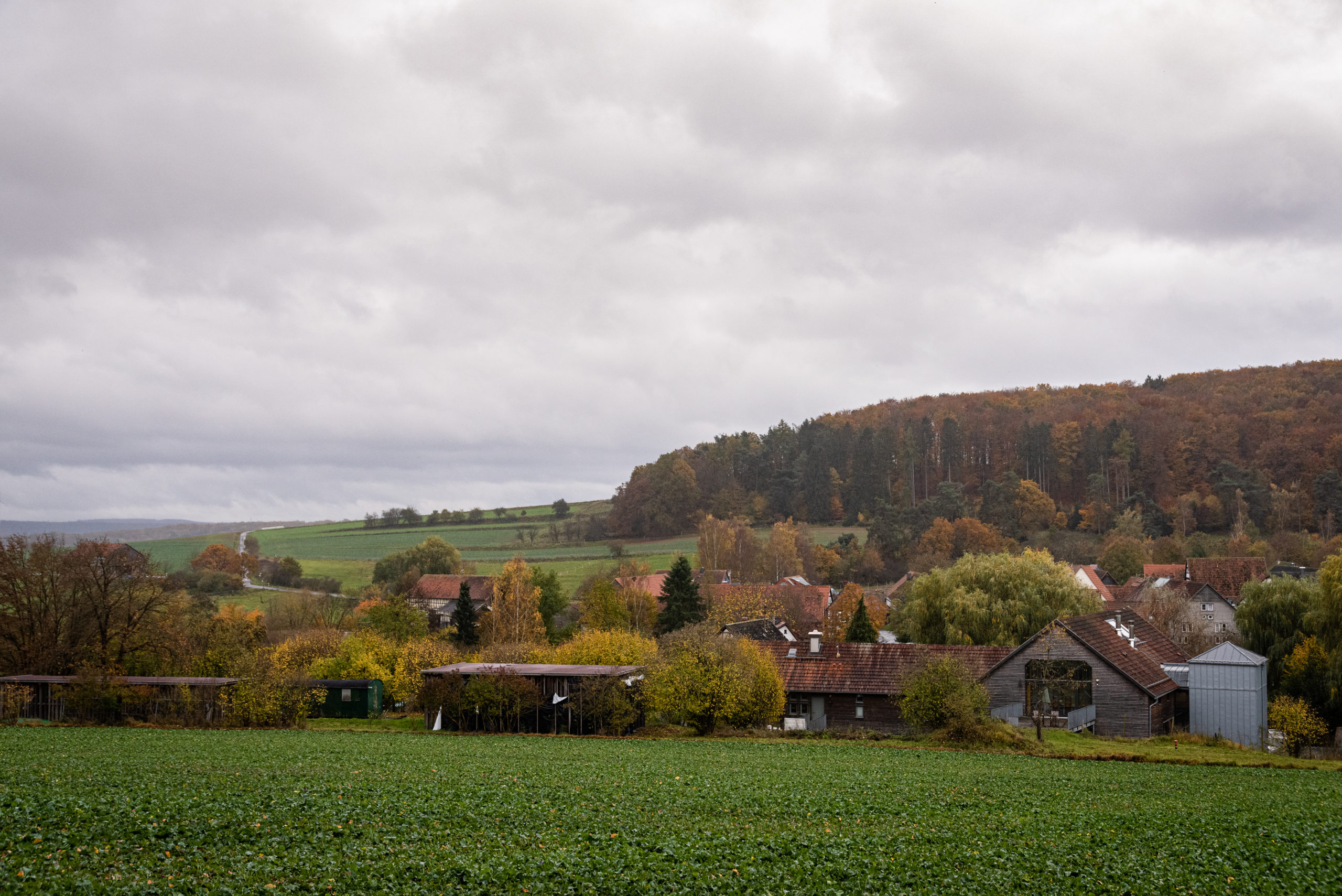
Photo: Robert Bosch Stiftung / Heinrich Völkel / Agentur Ostkreuz
Why Marburg?
An inspiring city, Marburg has committed to achieve climate neutrality by 2030. Surrounded by 40% farmland, some food processing structures still remain. Above all, there is a strong civil society alliance and political momentum on sustainable food systems: Marburg food council, a community health garden, four CSA farms, working groups on sustainable food education, a politically viable resolution on sustainable catering for kindergartens, and a variety of research projects on sustainable food systems.
Efforts to achieve coherent changes in agri-food systems are taking place through concrete actions in different contexts across Europe. Scaling up and multiplying these actions remains a challenge. The Marburg Action Plan is an invitation to align systems and policies. European institutions and other agri-food actors at different levels of governance can use the Marburg Action Plan to change policies where appropriate and find resources to act towards the implementation of future-proof food systems with an integrated approach and strong rural development component.
Download the Marburg Action Plan for Future-Proof Food Systems in Europe as a PDF
This article was produced with the support of the Robert Bosch Stiftung and Porticus. The Rural Europe Takes Action – Germany project is supported by the Robert Bosch Stiftung.


